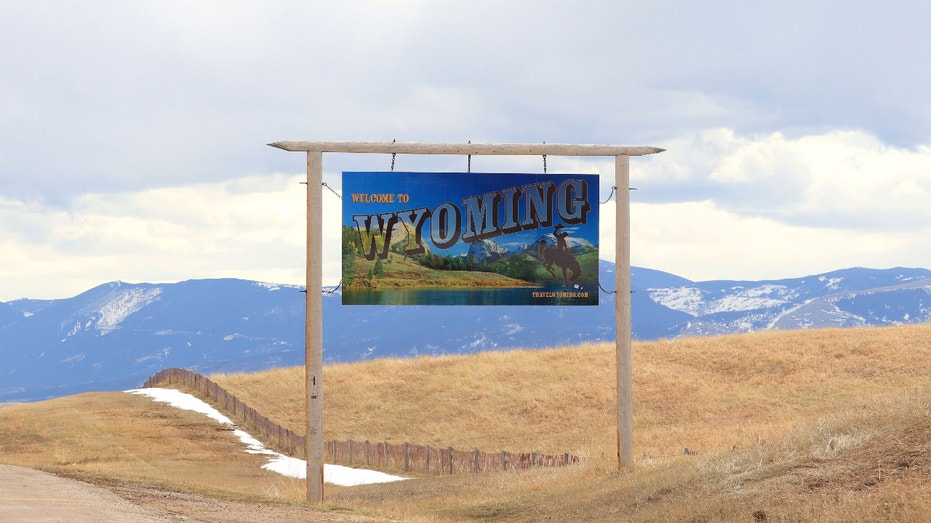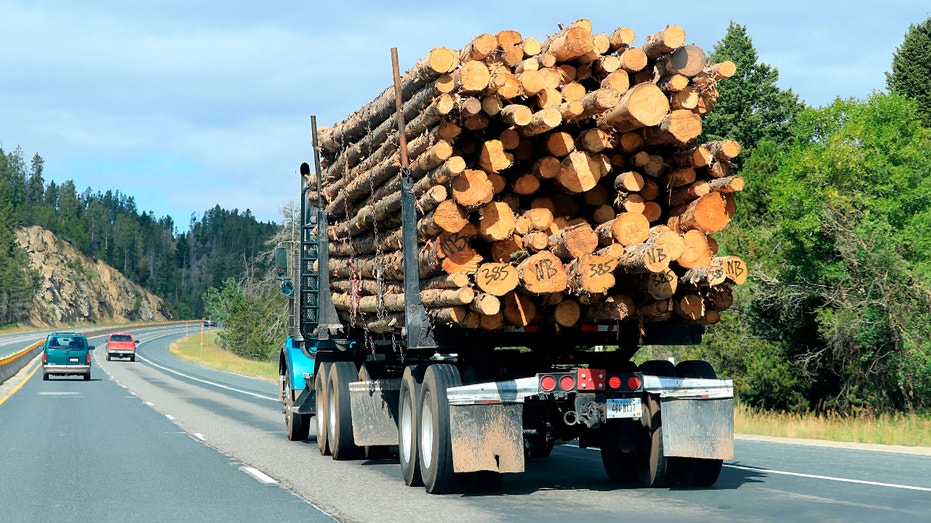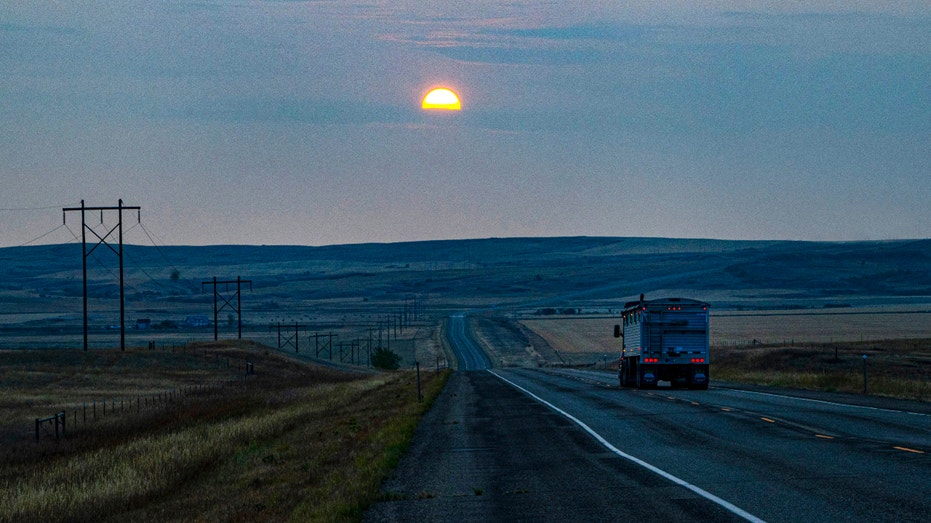Reconciliation bill: Transportation secretaries from rural states raise alarm over green energy provision
State transportation secretaries argue provision gives Federal Highway Administration too much power
Despite CBO score, White House stands by claim reconciliation bill won't add to deficit
The White House maintained that Biden's Build Back Better agenda, which passed the House, will not add to the deficit. Fox News congressional correspondent Chad Pergram has the latest.
Five transportation secretaries from rural states are raising an alarm over a green-energy provision in Democrats' reconciliation bill.
Transportation secretaries from Wyoming, Idaho, North Dakota, South Dakota and Montana say in a letter obtained by Fox News to the Senate Environment and Public Works Committee that one provision of the bill gives the Federal Highway Administration (FHWA) too much power. The letter says Section 110002(a) would give the FHWA the authority to impose general "consequences" on state highway programs if states do not reduce greenhouse gas emissions over a 10-year period.
GOP GOVERNORS TEAM UP TO GET AMERICA'S SUPPLY CHAIN MOVING AGAIN
"This provision is very expansively worded and would vest in the Executive Branch what seems to be potentially far-reaching power over State highway decisions," the authors wrote. "This includes allowing the Executive Branch to determine the extent of punishment or sanction (undescribed 'consequences') to be assessed on States and even to define the nature of the requirement (e.g., which greenhouse gas or gases are to be reduced, possibly in a short time frame)."
Sens. Mike Crapo, R-Idaho; James Risch, R-Idaho; Jon Tester, D-Mont.; Steve Daines, R-Mont; John Hoeven, R-N.D.; Kevin Cramer, R-N.D.; John Thune, R-S.D.; Mike Rounds, R-S.D.; John Barrasso, R-Wyo.; and Cynthia Lummis, R-Wyo., are copied on the letter.

Welcome to Wyoming highway sign along Interstate 90 north of Sheridan. (Don & Melinda Crawford/Education Images/Universal Images Group via Getty Images)
A senior Senate aide told Fox News the provision was "egregious" and decried it for being "yet another example of Democrats trying to impose solutions to urban issues on rural America, and with potentially disastrous consequences."
"These states are low in population and high in public lands – they’re not driving greenhouse gases, they’re driving solutions. Letting the FHWA take money from their highway funds at the discretion of a political appointee will only make it harder for Americans to live and work out west. Out west, FHWA funds are mainly used to maintain current roads, and reductions could make roads impossible to travel during winter months, or further harm supply chain issues due to decrepit road." said the aide.
Section 110002, otherwise known as Community Climate Incentive Grants, would allocate $3 billion in grants to local governments, city planning organizations and other entities that reduce states' carbon emissions through initiatives such as an expansion of public transportation. It would also give $50 million to the FHWA and $950 million to states to establish performance criteria and hold states accountable.
Proponents of the provision, such as the Rails-to-Trails Conservancy (RTC), say it will create more transportation options.

A logging truck travels on Interstate 90 in western Montana. (Don and Melinda Crawford/UCG/Universal Images Group via Getty Images)
"This bill represents an admirable effort by the T&I Committee, working with their Senate counterparts, to re-assert their infrastructure priorities around climate and equity – which puts added emphasis on the importance of walking and biking for transportation," Kevin Mills, RTC's vice president of policy, said in a Sept. 15 statement.
SUPPLY CHAIN ISSUES SHOW SIGNS OF EASING, BUT CRISIS IS FAR FROM OVER
The five transportation secretaries, however, point to a 2017 Federal Register notice that implemented an Obama-era greenhouse gas emissions measurement rule focused on reducing carbon in their letter. The rule, which was later found to be without statutory authority, encouraged states to enact "congestion pricing, road pricing, ramp metering, increased coordination with transit and non-motorized improvements, and paying fees to scrap low mileage heavy duty vehicles." Transportation secretaries argue that the advice was unrealistic for rural states, where people drive long distances to work and perform essential tasks.
The House provision in the reconciliation package would create similar challenges and "raise troubling questions," the authors wrote.

Sunrise filters through forest fire smoke near Wolf Point, Montana. (Bernard Friel/Education Images/Universal Images Group via Getty Images)
"For example, if a State has low population density, investment in transit options to attract riders to reduce GHG emissions is challenging due to the distance between riders," the authors said. "Further, highway investments in rural states are heavily focused on preservation of existing infrastructure … not on adding through travel capacity. Yet, even under a preservation based [sic] program, if that State experiences economic growth, reducing GHG emissions is a particular challenge, as the economic growth could result in increased emissions."
CLICK HERE TO GET FOX BUSINESS ON THE GO
The transportation secretaries added that while they have concerns about how the provision would impact the five rural states they represent, "other States are also concerned with this provision, a provision that cries out for further review."
If the provision is enacted, the authors requested that their five states be excluded from implementing such a measure.
The nearly $2 trillion spending bill, otherwise known as Biden's "Build Back Better" agenda, passed the House on Nov. 19, despite opposition from Republicans and lingering questions about the White House’s claim that the cost of its policies will be fully covered. The package contains a number of provisions aimed at combating climate change and easing a transition away from fossil fuel usage among U.S. consumers.
FOX Business' Kelly Laco and Michael Lee contributed to this report.





















